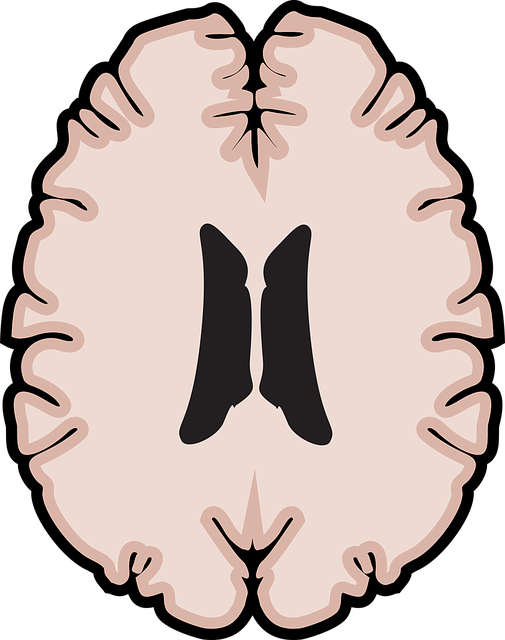Crisis Intervention Teams (CITs) are specialized resources that provide immediate support for young children and families facing parental mental health struggles, particularly postpartum depression (PPD). These teams, comprising psychologists, social workers, and nurses, use evidence-based practices like mindfulness meditation and compassion cultivation to enhance emotional well-being. Public awareness campaigns encourage help-seeking behaviors, while comprehensive training programs equip CITs with skills for early therapy in children affected by mental health crises. By focusing on secure attachment and compassionate care, these initiatives influence policy advocacy, ensuring access to resources for PPD prevention and treatment, ultimately promoting long-term mood management and mental wellness.
In today’s challenging landscape, effective crisis intervention teams (CITs) are a vital resource for pediatric mental health settings. This article delves into the critical role CITs play in supporting young children and their families, with a specific focus on navigating postpartum depression. We explore how specialized training programs empower healthcare professionals to provide timely interventions, fostering resilience and improving outcomes for vulnerable infants and mothers. By understanding these strategies, we can enhance therapy for young children and address prenatal mental health concerns.
- Understanding Crisis Intervention Teams: A Lifesaving Resource for Young Children
- The Impact of Postpartum Depression on Mothers and Their Young Ones
- Training Programs for Effective Crisis Intervention in Pediatric Mental Health Settings
Understanding Crisis Intervention Teams: A Lifesaving Resource for Young Children

Crisis Intervention Teams (CITs) are a vital resource in supporting young children and their families during challenging times. These specialized teams provide immediate assistance to children experiencing crises, often stemming from issues like parental mental health struggles, particularly postpartum depression. By quickly intervening, CITs can help prevent severe outcomes and promote resilience in both the child and their caregivers.
The role of these teams is crucial in fostering a supportive environment. Members typically include professionals such as psychologists, social workers, and nurses who employ evidence-based practices like mindfulness meditation and compassion cultivation to enhance emotional well-being. Public awareness campaigns play a significant part in recognizing the signs of parental depression and encouraging help-seeking behaviors. Through comprehensive training programs, CITs gain essential skills to navigate these complex situations, offering therapy for young children affected by mental health crises at an early stage.
The Impact of Postpartum Depression on Mothers and Their Young Ones

Postpartum depression (PPD) is a serious mental health condition that can profoundly impact mothers and their young children. When left untreated, PPD can lead to severe consequences for both mother and child, emphasizing the urgent need for comprehensive crisis intervention team training programs. The effects on infants are significant; they may experience delayed developmental milestones, poor sleep patterns, and even changes in brain structure due to prolonged exposure to maternal distress.
Early intervention is key, and crisis teams play a vital role in providing support through therapy for young children affected by PPD. Compassion cultivation practices can be particularly effective in fostering secure attachment between mother and child, which is essential for their well-being. Moreover, these programs contribute to broader mental health policy analysis and advocacy efforts, ensuring that families receive the necessary resources and care for PPD prevention and treatment.
Training Programs for Effective Crisis Intervention in Pediatric Mental Health Settings

Crisis intervention team training programs play a pivotal role in equipping healthcare professionals with the necessary skills to address pediatric mental health crises effectively. These programs focus on providing comprehensive guidance for identifying and responding to issues such as postpartum depression, which can significantly impact young mothers and their children. Through interactive workshops and simulations, participants learn to recognize early warning signs, implement immediate interventions, and facilitate a calm environment for therapy for young children experiencing emotional distress.
The curriculum typically incorporates evidence-based practices tailored to the unique needs of pediatric patients, including confidence-boosting techniques for both children and their caregivers. By combining knowledge of mental wellness coaching programs with practical crisis management strategies, these training initiatives empower teams to not only stabilize acute situations but also foster long-term mood management and mental wellness in young individuals.
Crisis intervention team (CIT) training programs are invaluable tools for equipping professionals with the skills to support young children and their families, especially those dealing with postpartum depression. By enhancing the capabilities of healthcare staff, these programs ensure that pediatric mental health settings can provide effective therapy for young children experiencing crises. Through comprehensive CIT training, caregivers gain the confidence and knowledge needed to navigate complex situations, ultimately fostering a healthier and more supportive environment for vulnerable families.














